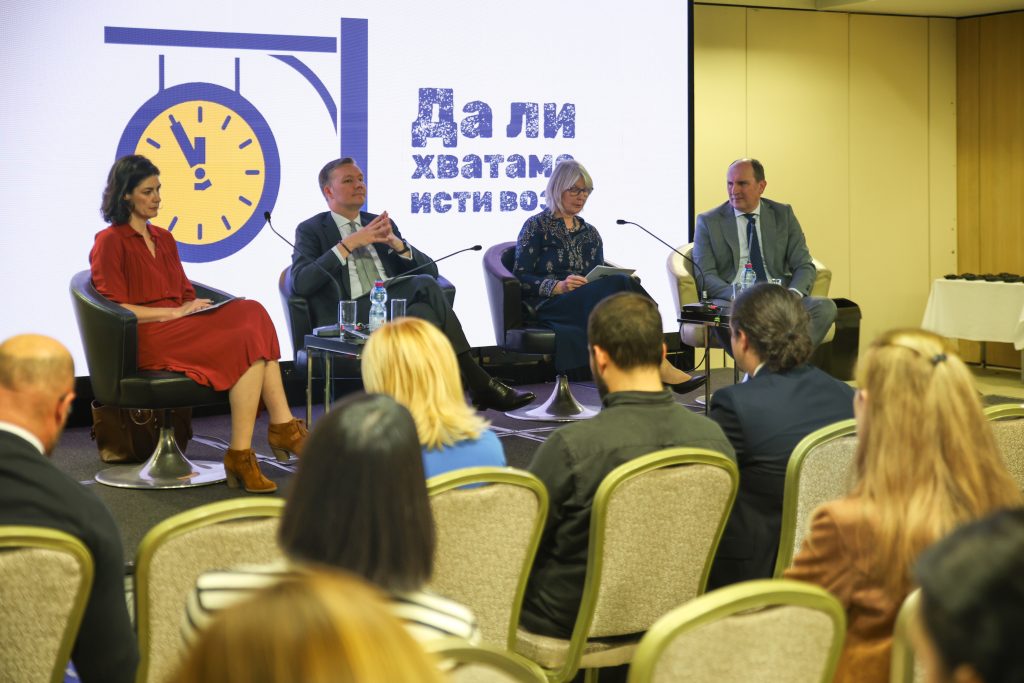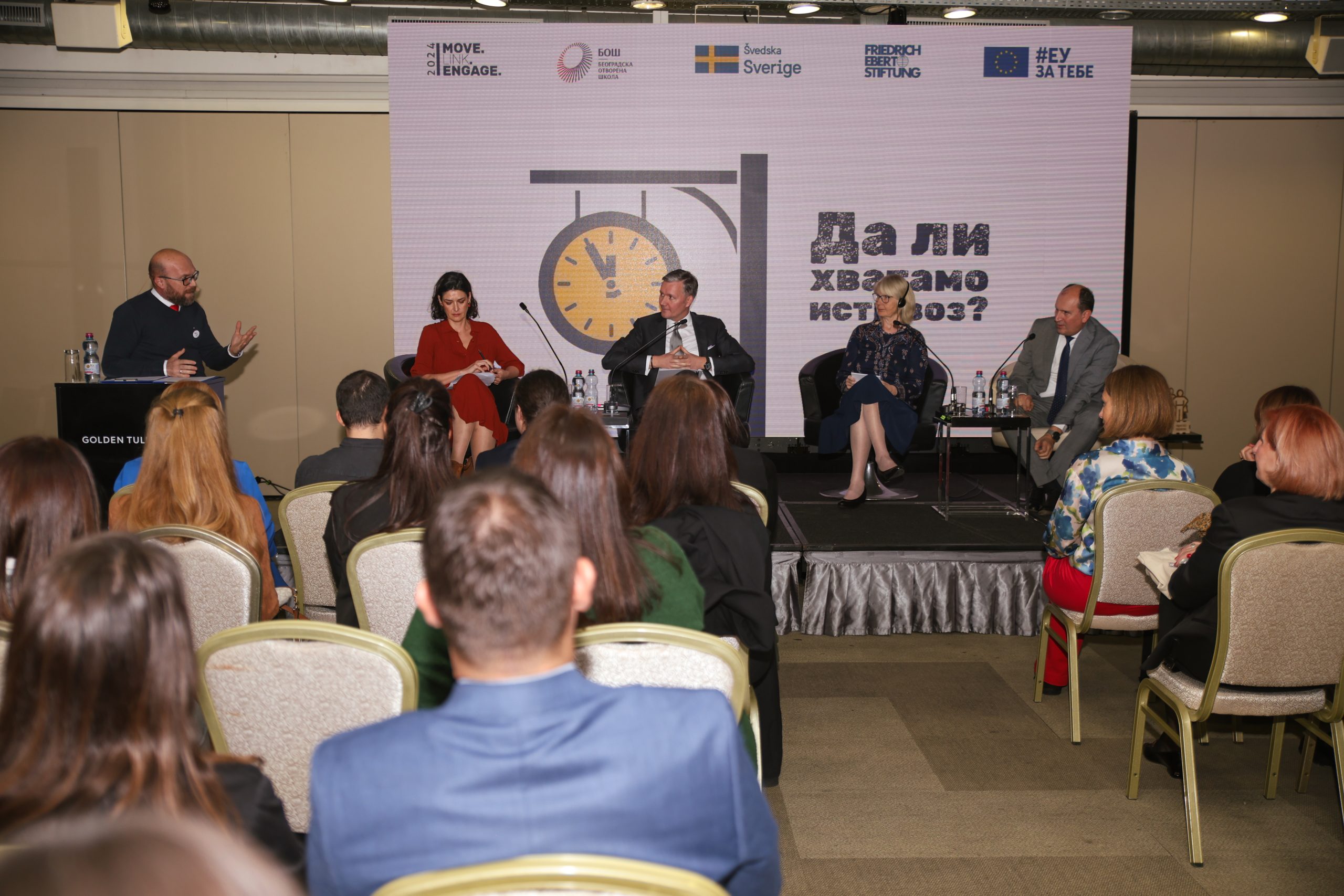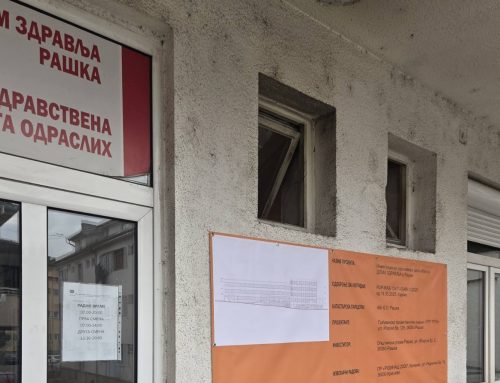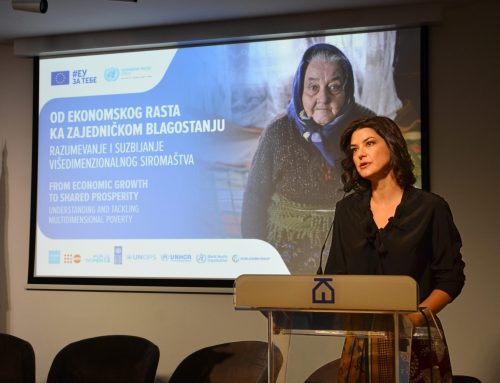At the Move.Link.Engage Conference, organized by the Belgrade Open School, the importance of reforms in the process of European Integration for the citizens of Serbia was highlighted. Plamena Halacheva, Deputy Ambassador of the European Union to Serbia and Anne-Charlotte Malm, Head of the Development Cooperation of the Swedish International Development Cooperation Agency spoke at the event that has been gathering experts from the civil, public and business sector for many years, as well as the representatives of the national and European institutions.
Halacheva emphasized that the EU strongly believes in the importance of empowered civil society and the media for a healthy democracy. “It is crucial that citizens know they have the power to influence public policy decisions that shape their lives. There are no successful reforms without the inclusion of all actors and their active participation,” said Halacheva.
Malm added that “the media play the role of a strong bridge between citizens and politicians, and it is necessary to further strengthen that dialogue. When citizens, media, politicians and civil society cooperate, democracy flourishes”.
According to Miroslav Gačević, Acting Assistant Minister for European Integration, “more than 60 percent of citizens believe that reforms are crucial for the society, because not only is the European Union the final destination, but the process of transformation that we are going through as a community is also important”.
Milorad Bjeletić, Executive Director of the Belgrade Open School, emphasized that the conference serves as an open forum for discussion on how the European integration process changes and improves the society. This year’s event, entitled “Are we boarding on the same train?” was implemented through the projects EU National Resource Centre for Civil Society in Serbia and Europe ASAP – Civil Society Advancing Serbia’s EU Accession Process.
EU National Resource for Civil Society – A place of support for the European future of Serbia
EU National Resource for Civil Society in Serbia provides support to civil society organizations and informal groups working to bring Serbia closer to the European Union. Through capacity building, networking and financial support, the EURC helps these organizations grow and develop.
The project is managed by the Belgrade Open School, in cooperation with partners from different Serbian cities: the Novi Sad School of Journalism, the Užice Centre for Children’s Rights, the Association of Economic Experts from Niš (ENECA), the Young Farmers of Serbia (Jagodina), the Safe Paths organization (Bor) and the New Planning Practice (Belgrade).

Regional resource centres are located in Novi Sad, Užice and Niš, while expert centres in Jagodina, Bor and Belgrade provide support in the fields of agriculture, rural development, transport policies and urban development.
The European Union continues to provide key support through these initiatives, encouraging the cooperation of all sectors in society and facilitating Serbia’s path towards the EU membership.




